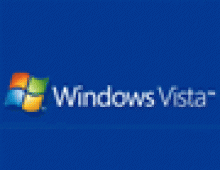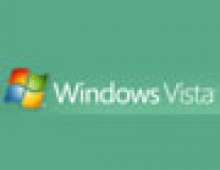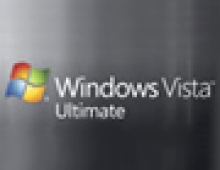
Vista For Home Computers to Make Overdue Debut
Windows Vista for home computers will make its debut on Tuesday, with Microsoft grandly launching an operating system that took five years and six billion dollars to ready for the world.
Microsoft has heralded its long-awaited and oft-delayed Vista as its most sophisticated, secure and intuitive operating system since Windows was first rolled out to challenge Apple's Macintosh software in 1985.
Reviews of Vista, which was put through extensive testing by computer makers and software developers, show it is packed with features that bring it up to date but break little new ground.
"I don't think it will change fundamentally what people do with computers or what they are capable of doing," said Rob Helm, research director at Directions on Microsoft.
"There is nothing Vista is going to blow the doors off of."
Helm and other industry analysts agreed that Vista was an appealing upgrade to its predecessor, Windows XP, that people would gradually shift with new computer purchases and software upgrades.
"There is no reason to avoid it," Helm said. "But it is not going to make you necessarily hunt down a new personal computer."
Microsoft began selling business versions of Vista and Office 2007 in November. The Redmond, Washington, software colossus will launch editions tailored for homes worldwide on Tuesday.
The top-end Vista Ultimate was priced at 399 dollars for the full package and 259 dollars as an upgrade to Windows.
A Home Premium version was priced at 239 dollars new and 159 dollars as an upgrade, while a stripped-down "basic" Vista will cost 199 complete or 99.95 dollars as an upgrade.
A low-budget Windows Vista Starter edition for "first-time PC users" will be sold exclusively in developing countries.
People rarely buy and install entire operating systems, tending instead to have them pre-installed on computers and then upgrading over time to meet performance needs, according to analysts.
The cost of premium Vista software is likely to result in computer makers raising prices, according to Gartner Research vice president Michael Silver.
An operating system shift and a bump in PC prices could prompt people to consider switching to Macintosh computers, which have gained in popularity due to a "halo effect" from Apple's popular iPod MP3 players.
"It makes the Mac more attractive," said analyst Mike Cherry of Directions On Microsoft. "When people leave an Apple Store, they are like a kid at Christmas that can't wait to open his gifts."
"When they leave a store with Windows, they leave with buyers' remorse."
While some US electronics stores plan to be open at midnight on Monday to begin selling Vista, analysts didn't expect them to see many shoppers.
"I don't see people running out to buy this," Cherry said of Vista.
"I think Windows will continue selling at the same rate it has been selling. When someone needs a new machine, they will buy it and they will buy it with Vista."
Analysts said it was important to bear in mind that Microsoft's operating system had sales rates and market share that were enviable and that the world's largest software company was judged in the context of tremendous expectations.
In keeping with the history of Windows, it was expected that flaws or vulnerabilities would be exposed in Vista after its release and that Microsoft would wind up refining the software.
To capitalize on Vista's full potential, computers will require enhanced memory and the latest graphics cards.
Reviews of Vista, which was put through extensive testing by computer makers and software developers, show it is packed with features that bring it up to date but break little new ground.
"I don't think it will change fundamentally what people do with computers or what they are capable of doing," said Rob Helm, research director at Directions on Microsoft.
"There is nothing Vista is going to blow the doors off of."
Helm and other industry analysts agreed that Vista was an appealing upgrade to its predecessor, Windows XP, that people would gradually shift with new computer purchases and software upgrades.
"There is no reason to avoid it," Helm said. "But it is not going to make you necessarily hunt down a new personal computer."
Microsoft began selling business versions of Vista and Office 2007 in November. The Redmond, Washington, software colossus will launch editions tailored for homes worldwide on Tuesday.
The top-end Vista Ultimate was priced at 399 dollars for the full package and 259 dollars as an upgrade to Windows.
A Home Premium version was priced at 239 dollars new and 159 dollars as an upgrade, while a stripped-down "basic" Vista will cost 199 complete or 99.95 dollars as an upgrade.
A low-budget Windows Vista Starter edition for "first-time PC users" will be sold exclusively in developing countries.
People rarely buy and install entire operating systems, tending instead to have them pre-installed on computers and then upgrading over time to meet performance needs, according to analysts.
The cost of premium Vista software is likely to result in computer makers raising prices, according to Gartner Research vice president Michael Silver.
An operating system shift and a bump in PC prices could prompt people to consider switching to Macintosh computers, which have gained in popularity due to a "halo effect" from Apple's popular iPod MP3 players.
"It makes the Mac more attractive," said analyst Mike Cherry of Directions On Microsoft. "When people leave an Apple Store, they are like a kid at Christmas that can't wait to open his gifts."
"When they leave a store with Windows, they leave with buyers' remorse."
While some US electronics stores plan to be open at midnight on Monday to begin selling Vista, analysts didn't expect them to see many shoppers.
"I don't see people running out to buy this," Cherry said of Vista.
"I think Windows will continue selling at the same rate it has been selling. When someone needs a new machine, they will buy it and they will buy it with Vista."
Analysts said it was important to bear in mind that Microsoft's operating system had sales rates and market share that were enviable and that the world's largest software company was judged in the context of tremendous expectations.
In keeping with the history of Windows, it was expected that flaws or vulnerabilities would be exposed in Vista after its release and that Microsoft would wind up refining the software.
To capitalize on Vista's full potential, computers will require enhanced memory and the latest graphics cards.



















